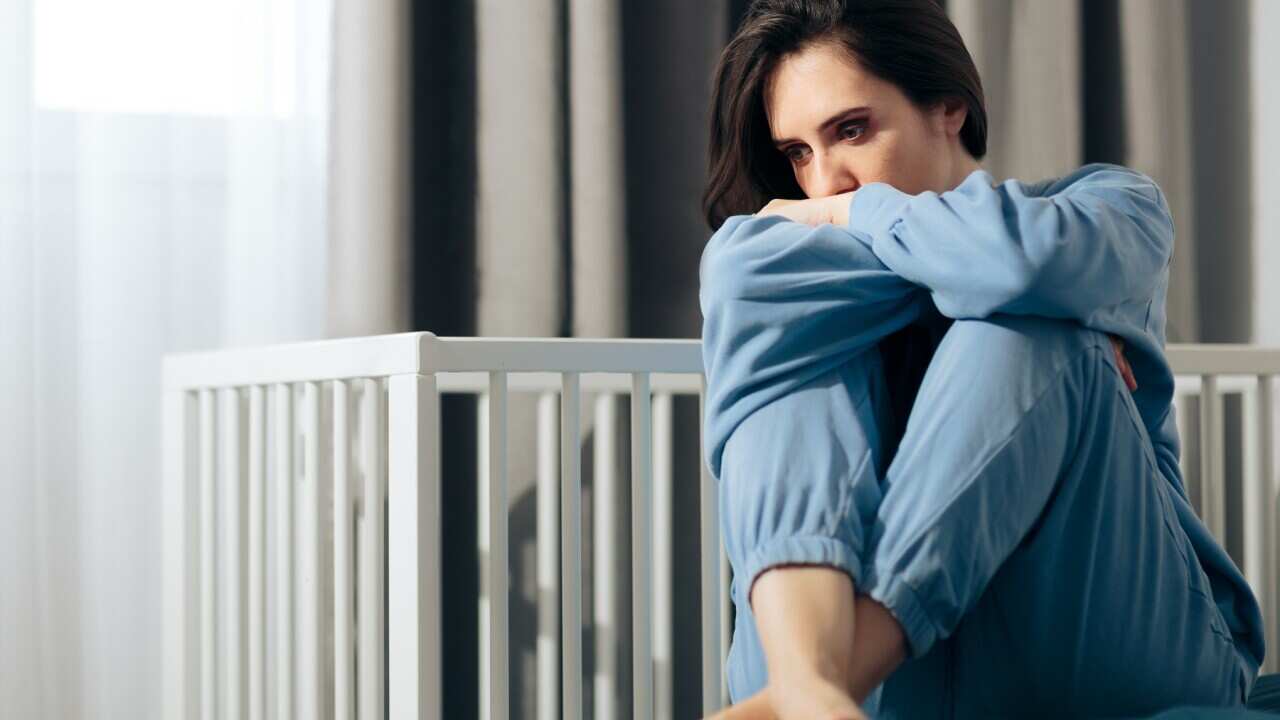Stephanie Trethewey is a mother of two based in rural Tasmania.
She runs a beef business with her husband in Dunorlan, over 200 kilometres from Hobart.
Throughout her life, she says, her career has always been one of her biggest priorities, and professional success was a large part of her identity.
So when she had her first child in 2019, she says, everything changed.
"I brought my little baby boy home from the hospital and it was a really tough journey. He was very colicky, which means he would just scream for hours and hours on end. We went through a couple of months where he woke up every 45 minutes at night, every 45 minutes throughout the night. That was already hard, but I was also felt like I lost myself. I didn't know who I was any more. I was at home with this baby and we live in a society where women in particular are told to be hashtag grateful, you know, for motherhood, And so when you don't feel that way, and when you are struggling, you feel incredibly guilty and you feel a lot of shame. So I was struggling in silence, I thought I had ruined my life becoming a mum."
What Ms Trethewey experienced is not uncommon.
In fact, perinatal depression and anxiety affects almost 100,000 new and expectant parents in Australia each year.
The Gidget Foundation has joined an international campaign calling on the World Health Assembly and the United Nations World Health Organisation to officially recognise World Maternal Mental Health Day on May 3rd.
If you or someone you know needs crisis support, contact Lifeline on 13 11 14, the Suicide Call Back Service on 1300 659 467 and Kids Helpline on 1800 55 1800 (for young people aged up to 25).
More information and support with mental health is available at beyondblue.org.au and on 1300 22 4636.
Embrace Multicultural Mental Health supports people from culturally and linguistically diverse backgrounds.




